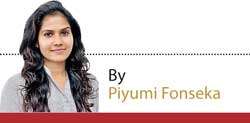 The Colombo Pride month supporting Lesbian, Gay, Bisexual, Transgender, Intersex and Questioning (LGBTIQ) rights, culture, and community ended last week. Celebrations wrapped up for this year, offices closed and volunteers returned home. In spite of annual celebrations, problems faced by the Sri Lankan LGBT community still remain ignored.
The Colombo Pride month supporting Lesbian, Gay, Bisexual, Transgender, Intersex and Questioning (LGBTIQ) rights, culture, and community ended last week. Celebrations wrapped up for this year, offices closed and volunteers returned home. In spite of annual celebrations, problems faced by the Sri Lankan LGBT community still remain ignored.
Taking public transport, be it the train or the bus and on the way to work, studying in school or in tuition classes, hanging out with friends in public places, going to a super market to grab some goodies, meeting special people at special places etc., are events and activities that make our lives eventful. Do you know that for LGBT persons in our country, all the above mentioned activities can even leave them disappointed about their existence in the world? This is due to the discrimination they encounter everyday. Due to this discrimination, Sri Lankan LGBT people have suffered a lot silently and many have even ended their lives.
The EQUAL GROUND, an organization working for the rights of LGBTIQ people in Sri Lanka, stated that approximately 19.6% (753,973) of the adults aged 18-years and older living in Colombo, Matara, Nuwara Eliya and Kandy in 2017 are either lesbian, gay, bisexual and/or transgender. The organization goes with a beautiful saying “when differences are no longer seen as reasons for conflict, they can be celebrated”.
Photos courtesy of EQUAL GROUND
Social exclusion
Regrettably, LGBT people are excluded from society in many countries including Sri Lanka. In the world, Iceland, the Netherlands, Sweden and Denmark were found to be the countries that accepted them the most. Although Sri Lanka along with the other countries in the world is in a new era with the astonishing technological revolutions, a shift in attitudes toward LGBT people appears to be a long shot.
The present Government made an attempt in January last year to stop discrimination based on sexual orientation. However, as a result of protests by some ministers, the Cabinet rejected the proposal for the provision which had been included, under women’s rights, in the draft on the Human Rights Action Plan seeking not to discriminate anyone on sexual orientation.
I still cannot understand why Sri Lanka is still going ahead with colonial laws to marginalize the LGBTIQ people. The Government is responsible for ensuring equality for all parts of the community
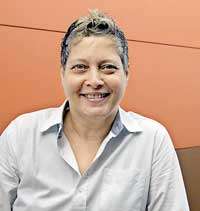 Rosanna Flamer-Caldera
Rosanna Flamer-CalderaEQUAL GROUND Executive Director
What does the phrase “LGBT community” mean? Why is the “LGBT” notion problematic? Chances are if you don’t properly know what it means, you might think the term LGBT as a psychiatric disorder and an epidemic gifted by the Western culture, destroying cultural, religious and traditional values of the country. That is how the majority of Sri Lankans view the LGBT community. But just stop for a minute, think and try to feel that you were one of them.
The Daily Mirror spoke to EQUAL GROUND Executive Director Rosanna Flamer-Caldera who has been active in the struggle for LGBTIQ rights in Sri Lanka and internationally since 1999.
“The lack of social recognition has gravely affected the capacity of LGBT people to fully access and enjoy their rights as other citizens. This discrimination is supported by the existing laws – Section 365A of the Sri Lanka Penal Code – that criminalize homosexuality. First and foremost homosexuality should be decriminalized in Sri Lanka,” she said.
The Sri Lankan LGBT community that stepped out in the recent past with their identities is still struggling for inclusivity.
Lesbians are often forced into marriage against their will resulting in a lifetime of emotional, physical and sexual abuse
She noted that everyone should be able to respect the right of the LGBT people to make decisions about their personal lives with liberty.
“I still cannot understand why Sri Lanka is still going ahead with colonial laws to marginalize the LGBTIQ people. The Government is responsible for ensuring equality for all parts of the community regardless of race, gender, religions, etc,” Rosanna pointed out.
“On the outer side of the high walls in Welikada Prison, large bold letters declare: Prisoners are also Human Beings. If so, why can’t people accept and respect LGBTIQ people in Sri Lanka?,” she asked.
She called for new regulations to prevent discrimination of LGBT people.
She also noted that the reaction of parents, family members, and loved ones at the moment of coming out is crucial both for the LGBTIQ individual and for the future relationship of that family. “During this moment, there is much at stake. The coming-out moment can amount to a pivotal role in young people’s mental health—and that family support for LGBTQ youth matters tremendously,” she added.
“There are lots of myths about sexual orientations and what they all mean. Many members of the LGBT community still experience prejudice, hatred and threats to their safety on a daily basis due to these myths. Our organization EQUAL GROUND is carrying out awareness programmes to bust such myths and misunderstandings about this community,” said Rosanna.
Legal inclusion
According to the existing Sri Lankan law, only ‘normal citizens’ should be entitled to full citizenship rights, indicating that the ‘normal citizen’ should be heterosexual. As of now, people who are not heterosexual are not entitled for all the rights in the Constitution in Sri Lanka.
Trans women are harassed verbally, physically and sexually for their gender identity and expressions
As per the recent findings, these marginalized groups of people are also more likely to avoid calling the police because of fear of anti -LGBT treatment. Many LGBT people have also reported experiencing unpleasant and unfair treatment due to their sexual orientation or gender identity when they sought legal assistance for any issue they faced.
Any pathway which could take the country to be inclusive begins with the decriminalization of homosexuality and proceeds to fundamental rights.
To discuss about the legal matters pertaining to the LGBT people in Sri Lanka, the Daily Mirror spoke to Former Human Rights Commissioner Dr. Prathiba Mahanamahewa. He spoke about the emergency and necessary requirement to amend the Penal Code in order to recognize the community rights by decriminalizing the following sections.
Also these community members are verbally harassed at police stations and sexually victimized. It is needed to incorporate sexual orientation in a new Constitution
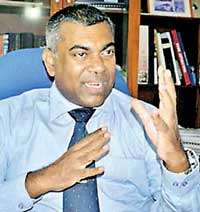 Dr. Prathiba Mahanamahewa
Dr. Prathiba MahanamahewaFormer Human Rights Commissioner
Section 365 and Section 365A of the Penal Code describe that the unnatural offences and Acts of gross indecency between persons shall be punished with rigorous imprisonment for a term not less than 10 years and not exceeding twenty years with a fine and compensation.
Section 399 of the Penal Code is used by the police to further discriminate and arrest members of this community. This section defines cheating by personating (Gender impersonation). This section is mostly used against trans-genders because after the plastic operation which transforms them to a different gender, their identity documents bear the opposite gender.
- Section 07 of 1841 Vagrants Ordinance is used against them to charge for soliciting and acts of indecency in public places. Imprisonment for a term not exceeding six months and a fine of 100 rupees is imposed. Therefore, community members cannot even remain at a public bus stand for more than half an hour because they might get arrested.
“When they are arrested by the police and produced before a magistrate they are sent for a mandatory blood test. But, there are some reported cases when they are arrested two to three times for a week they have to repeat this test and it amounts to the harassment of the community members,” said Mahanamahewa.
“Article 12.1 and 12.2 of the Constitution protect and guarantee the right to equality as a fundamental human right. But LGBTIQ community members are reputedly discriminated against in police stations and public places. Even after they provide their identity certificate, the police officers eagerly wait to conduct a body check in some incidents. Also these community members are verbally harassed at police stations and sexually victimized. It is needed to incorporate sexual orientation in a new Constitution,” he added.
According to a study conducted by the EQUAL GROUND with responses from 470 individuals who identified as lesbian, gay, bisexual, heterosexual and transgender, the majority of these LGBT persons face stigma and discrimination in government services including education and healthcare.
Some have also been physically attacked and verbally abused in public because of their sexual orientation and/or gender identity/expression. Stigma is deep-rooted and even though numbers being just a few, some LGBT persons themselves feel that they are mentally ill (8.7%) and/or abnormal (3.3%) because they associate themselves with the LGBT identity. However, even though the law criminalizes consenting sexual relations between members of the same sex in Sri Lanka, no LGBT person believes he or she should be punished by the law because of sexual orientation.
Since the issue is not limited to LGBT people, I think awareness on ethnicity, class, race and religion should also be increased
Changes in education
Speaking to the Daily Mirror, Dr. Harini Amarasuriya, a Sociology Professor at the Open University, said the problem with social acceptance does not affect only the LGBT people, but also all the minority groups in Sri Lanka.
“There are conservative sections in any society. That is why the LGBT issue is highlighted in this country. The voice of the conservative sections is so loud that the voices of those who are not conservative minded cannot even be heard,” she said.
She opined that first of all people should be able to learn about other kinds of cultures, sexualities, races, classes and religions to simply accept that there are many different ones other than their own.
There are conservative sections in any society. That is why the LGBT issue is highlighted in this country. The voice of the conservative sections is so loud
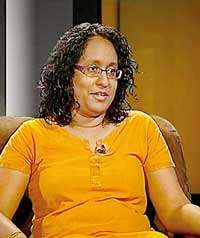 Dr. Harini Amarasuriya
Dr. Harini AmarasuriyaSociology Professor at the Open University
“People need to start learning more about the diversity and surround themselves with diverse groups of people. Being open to learning about different things also can encourage people to have diverse friend groups that include people of all different races, ethnicities, religions and sexual orientations,” she said.
Amarasuriya was of the view that in order to create a society where LGBT people can live freely and with dignity, education on sexuality and sexual orientation should be introduced.
She noted that school plays a very important role in creating a society that’s aware and therefore subjects on sexual orientations and gender should be made mandatory in the school syllabus.
“Since the issue is not limited to LGBT people, I think awareness on ethnicity, class, race and religion should also be increased. Awareness should be increased in order to promote a fair and permissive attitude towards those whose sexuality, race, religion, nationality differ from one’s own. Those values should be strongly promoted,” said Dr. Amarasuriya.
In this course, political leaders and the media have important roles to play, she added.
Following are two real life stories of two Sri Lankans who identified themselves as gay and lesbian. The first story about the lesbian couple was uncovered by the EQUAL GROUND in its recent report. The second story about the gay person is based on an interview done with him by the writer. Names have been changed to
ensure confidentiality.
“We were assaulted and forced into heterosexual marriages”
“I had obtained my primary education at a primary school and studied up to 5th Grade in that school and then changed to another. My mother had passed away and I was living with my father and my eldest sister. I had wanted to dress and behave like a boy and used to cut my hair short and dress up in T-shirts and trousers.
During my school days, I tried to start relationships with many girls, but failed. I was determined to somehow start an affair with a girl. When I finished my Advanced Level Exam and while staying at home I always associated with boys. I used to ride bicycles and tried to get friendly with girls many times.
Later the villagers had got to know of my behaviour and started insulting me and they did not allow me into their houses.
In 1992 I started an affair with a girl by the name of Maala. We started working in a garment factory in Nochchiyagama. By this time our affair was revealed to the villagers and co-workers and we could not continue working there. Therefore we left that garment factory in 1994 and had come to a boarding house in Colombo and started living together. After living together for almost two years we were found by our family members and were brought back to the village and assaulted.
Maala was forced into marrying a man from the Army and I too was forcibly given in marriage to a man who was 8 years younger than I.”
“I wanted to commit suicide for being gay and being discriminated against”
“Since childhood, all what I had heard about being gay, lesbian and transgender was very negative and disturbing.
Since my behaviour was different from other students in my school, I was bullied. Whenever I behaved freely, I have always felt humiliation. According to typical social beliefs, boys should be mischievous and girls should be innocent. If a boy is innocent, people think there should be something wrong with him.
When others always talk of how memorable their school lives were and that they want to return to that time, I don’t even want to think about it. I did not have a happy school life. School was always a miserable place where I faced humiliation and discrimination.
I was rejected by my friends because I was not a stereotype. In grades 6 and 7 in my school, I was branded with different names.
My school was a place where teachers promoted Victorian values which specified how men and women should be. Since I was behaving as neither, I was bullied.
From morning till afternoon, I faced very bad experiences within my classroom. It was very upsetting.
When I was in grade 10, I was contemplating suicide due to being bullied. I looked for options to kill myself because I could not take it anymore. But, at the same time, I was praying to my God. Meanwhile, I somehow got an opportunity to read about psychology. I was able to learn many things and stabilize my mind.
For my higher studies I came to Colombo, a place where I could find many people like me. There was a special person among them to whom I got very much attached to.
When I was in grade 10, I was contemplating suicide due to being bullied. I looked for options to kill myself because I could not take it anymore. But, at the same time, I was praying to my God
He was an extremely nice person and a good listener. I clearly identified myself as gay only when I started falling for him. I could not believe myself having a relationship with another guy. Being surrounded by role models presented by the media since the day we were born, it was a shock to me to stand as someone who is different from those stereotypes. Although he was a nice person, the pressure of having that relationship doubled my stress.
We used to communicate as best friends and share our problems with each other. He was under medication for depression for a long time. I remember him calling me and crying. Every time he called me, he told me how lonely he felt because he had been rejected by his family and his friends for being gay.
He committed suicide last year.
The society refers to our feelings as addiction. No one is able to get into our shoes and understand our feelings. Teachers in school only promote toxic masculine ideas and feminine ideas.”
The Sri Lankan society is divided ethnically, culturally and religiously. But, at the end of the day, all are humans. When it comes to LGBTIQ people, the society has set up a different and discriminative lenses to look at them.
Cultivating the acceptance for LGBTIQ community in the Sri Lankan society is not an easy task. In a country where people cannot even tolerate other religions, races and beliefs and consequently get into brutal conflicts such as the recent riots in Kandy District, accepting the LGBTIQ community is a long shot.
If the responsible parties show real interest and come up with a stronger plan comprising a broader and coordinated educational effort, changing the attitudes toward LGBT people in Sri Lanka can be achieved.
 The Colombo Pride month supporting Lesbian, Gay, Bisexual, Transgender, Intersex and Questioning (LGBTIQ) rights, culture, and community ended last week. Celebrations wrapped up for this year, offices closed and volunteers returned home. In spite of annual celebrations, problems faced by the Sri Lankan LGBT community still remain ignored.
The Colombo Pride month supporting Lesbian, Gay, Bisexual, Transgender, Intersex and Questioning (LGBTIQ) rights, culture, and community ended last week. Celebrations wrapped up for this year, offices closed and volunteers returned home. In spite of annual celebrations, problems faced by the Sri Lankan LGBT community still remain ignored. 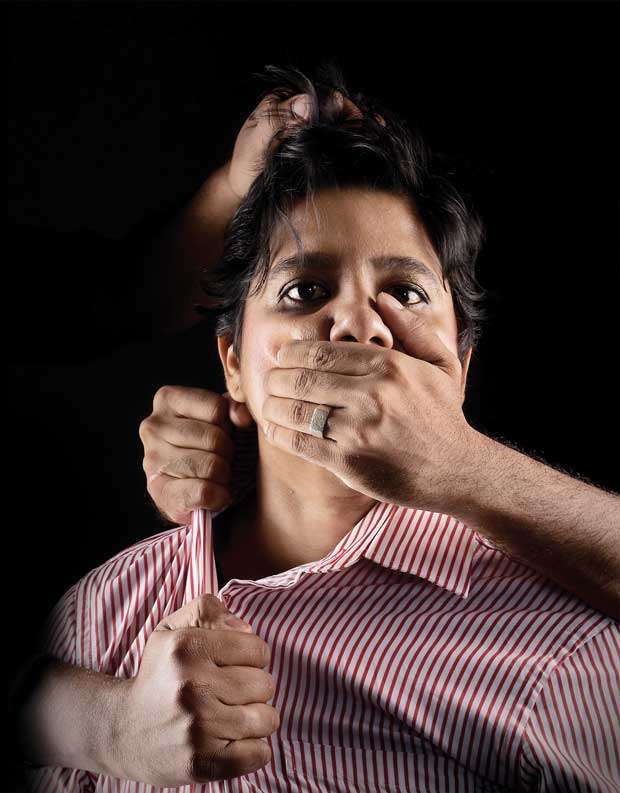
 Rosanna Flamer-Caldera
Rosanna Flamer-Caldera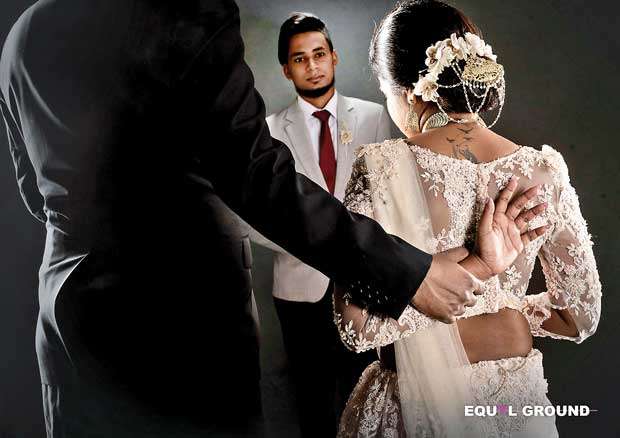
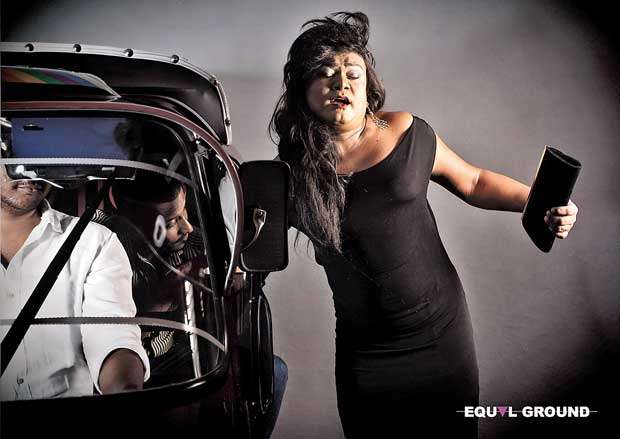
 Dr. Prathiba Mahanamahewa
Dr. Prathiba Mahanamahewa Dr. Harini Amarasuriya
Dr. Harini Amarasuriya